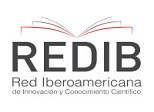Afro Cultural Identity and Student Perception at César Nevil Estupiñán Bass General Education Institution of Simón Plata Torres Parish
DOI:
https://doi.org/10.69890/hallazgos21.v8i2.626Keywords:
Afro, identity, traditionsAbstract
Identity reflects the essence of each human being, their own characteristics, what they are, what they believe, and those convictions that distinguish them from others. With the objective of analyzing the perception that the students of a Basic General Education Institution at the Simón Plata Torres Parish in the City of Esmeraldas have about the Afro-cultural identity to which they belong, a quantitative study was carried out, with a descriptive approach, to a convenience sample of 29 eighth, ninth and tenth-grade students, divided into groups of 10 by courses, to whom a survey was applied, and the Multigroup Ethnic Identity Scale was selected as an assessment instrument. (EIEM). The ages of the participants are between 12 and 15 years old. The results show that at the Afro-identity level, the students evidenced that the level they have is medium-high. The questions that they answered present a moderate average of 2.78 in total; the aspects that make up the Afro-cultural identity are having Afro-descendant blood, eating traditional foods, being convinced of their descent; they feel attached to their group or community and know about Afro-music. Four categories emerged which are pride to be Afro and knowledge of their ancestors (37.9%), respectively, while being born and living with 10.3% and ignorance of their culture and tradition 13.7%, indicate that few students do not know about their culture and identity. It is concluded that Afro adolescents feel very proud of their Afro community, very well with their cultural tradition, they reaffirm that they are happy to belong to that town and that they are very aware of their roots.
References
Antón, J. (2010). La experiencia Afrodescendiente y la visibilidad estadística en el Ecuador. Santiago: Naciones Unidas. https://repositorio.cepal.org/bitstream/handle/11362/39978/1/LCW368_es.pdf
García, J. (2018). Afroepistemología y pedagogía cimarrona. Afrodescendencias Voces en resistencia. http://biblioteca.clacso.edu.ar/clacso/se/20180712070816/Afrodescendencias.pdf
González, V. (2000). Identidad cultural un concepto que evoluciona. Revista Opera, 7. Granja, D. O. (2015). El constructivismo como teoría y método de enseñanza. Sophia, (19), 93-110.
Guitart, M. (2010). Propiedades psicométricas y estructura factorial de la Escala de Identidad Étnica Multigrupo en español (MEIM). Revista Latinoamericana de Psicología, vol. 42, núm. 3, p. 405-412. https://www.redalyc.org/pdf/805/80515851005.pdf
Instituto Nacional de Estadísticas y Censos (2010). Obtenido de http://www.Ecuadorencifras. gob. ec/institucional/home.
Kaluf, C. (2005). Diversidad cultural: materiales para la formación docente y el trabajo deaula.
OREALC/UNESCO. https://unesdoc.unesco.org/ark:/48223/pf0000151226
Johnson, E., & Antón, J. (2020). Educación, negritud y nación: políticas de inclusión educativa para Afrodescendientes en Ecuador.
McMillan, J. H., & Schumacher, S. (2005). Investigación educativa. Madrid: Pearson.
Ministerio de Educación del Ecuador (2017). Experiencias de aprendizaje sobre la cultura Afroecuatoriana. https://www.educacion.gob.ec/wp-content/uploads/downloads/2018/04/curriculo/LIBRO-AFRO.pdf
Minota, C. J. (2021). Enjambre Cultural, Fondo Editorial CCE NE.
Molano, O. L. (2007). Identidad cultural un concepto que evoluciona. Revista opera, (7), 69-84. https://www.redalyc.org/pdf/675/67500705.pdf
Moreno, S.M. (2008). Identidad étnica en indígenas Huetares de Quitirrisí. Revista de Ciencias Sociales (Cr), IV (122), 27-38. [Fecha de Consulta 3 de octubre de 2021]. ISSN: 0482-5276. https://www.redalyc.org/articulo.oa?id=15312992003
Posada Monsalve, M. A. (2018). Incidencia de las Redes Sociales sobre la Construcción de la Identidad en Adolescentes y Jóvenes: Una Metasíntesis con enfoque de Desarrollo Humano.https://repository.udistrital.edu.co/bitstream/handle/11349/14373/PosadaMonsa lveManuelAlejandro2018.pdf?sequence=1&isAllowed=y
Published
How to Cite
Issue
Section
License
Los artículos enviados a la Revista Científica Hallazgos21 deberán ser totalmente originales e inéditos.
Los autores son los responsables de los textos y las imágenes incluidas en los artículos y no necesariamente reflejan el pensamiento de la editorial o de la Pontificia Universidad Católica del Ecuador, Sede Esmeraldas (PUCESE).
Los autores disponen cederle a la Revista Científica Hallazgos21 todos los derechos inherentes para la edición, publicación y distribución o divulgación del mismo.
Se autoriza a las revistas firmantes de los acuerdos de Encuentros de Revistas Latinoamericanas para reproducir en parte o totalmente los artículos con la sola mención de la fuente claramente señalada.







